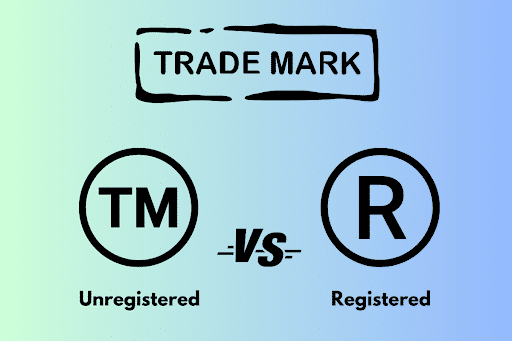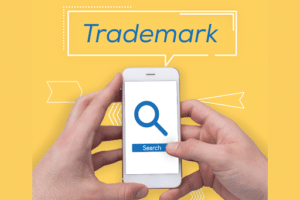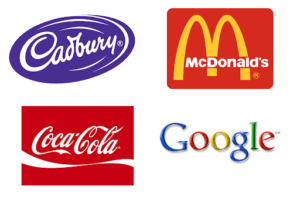- About Us
- Services
- Industries
- Resources
- Tools
- Locations
- Contact Us

In Australia, legal protections exist for both registered and unregistered trademarks. As such the choice of whether to invest in the formal registration of a trademark is one that many businesses weigh-up or often delay.
Ultimately, while opting not to register a trademark does not leave you entirely without protection from infringement, registration offers far greater safeguarding of your valuable intellectual property. Registration of your trade mark does offer the security in the knowledge that you can safely continue to use your brand as having a registered trade mark is a defence to any alleged infringement.
In this guide, we will touch on the key differences between registered and unregistered trademarks from a legal standpoint and answer some common queries related to these.
Below, we have compared the legal protections available to both registered and unregistered trademarks to highlight the importance of registration.
|
Aspect |
Registered Trademarks |
Unregistered Trademarks |
|
Legal Basis for Protection |
Protected under the Trade Marks Act 1995 |
Protected under Common Law rights, and Australian Consumer Law (ACL) |
|
Ease of Enforcement |
Easier to enforce, as registration provides legal ownership and a presumption of exclusive rights to the mark |
Harder to enforce, as proof of reputation and misleading conduct is required for protection |
|
Burden of Proof |
Lower; the registration certificate is sufficient proof of ownership and exclusive rights to the mark |
Higher; must prove that the unregistered mark has developed a reputation in the relevant market and that misuse is likely to cause confusion or deceive consumers |
|
Scope of Protection |
Nationwide protection regardless of actual market presence in all areas |
Limited to areas where reputation and goodwill have been established |
|
Presumption of Ownership |
Registered owner has immediate presumption of ownership over the trademark in relevant classes |
No presumption of ownership; must demonstrate goodwill or reputation, which can be challenging, expensive and time-consuming |
|
Infringement Actions |
Clear infringement action available under the Trade Marks Act against unauthorised use of an identical or deceptively similar mark |
Legal actions are complex, relying on passing off or misleading and deceptive conduct under the ACL, which may be harder to prove. Significantly more expensive. |
|
Available Legal Remedies |
- Injunctions to stop the infringer from using the mark - Damages for financial loss due to infringement - Account of Profits to recover profits earned by the infringer - Seizure of counterfeit goods |
- Injunctions to prevent further misuse of the mark - Damages for financial losses, though harder to quantify and prove - Account of Profits may be possible but is often challenging to establish |
|
Proof of Confusion or Deception |
Presumed based on similarity to registered mark within the same category; does not require evidence of actual confusion |
Must prove that the unregistered mark’s reputation has been misappropriated and is likely to mislead consumers or cause confusion |
|
Protection from Copycats and Infringement |
Strong protection; can enforce rights against copycats and prevent registration of similar marks by others. Recognised by platforms such as Amazon and eBay, to make takedowns easier. |
Limited protection; harder to prevent others from using a similar mark without proving a reputation and likelihood of confusion |
|
Potential Costs of Enforcement |
Typically lower, as registration provides a strong basis for legal action and minimises the need for additional evidence |
Often higher, as litigation requires extensive evidence to prove goodwill, market reputation, and actual confusion or deception |
|
Duration and Renewal |
Renewable indefinitely every 10 years, with protection as long as the trademark is in use and maintained |
No formal duration or renewal; protection lasts as long as the mark is in use and maintains goodwill in the market but requires ongoing effort to establish and protect |
|
Ability to License or Sell |
Fully transferable and licensable, adding value to the business through monetisation and legal recognition |
Transfer or licensing is more challenging and may require additional documentation to prove market reputation and goodwill |
|
International Recognition |
Can be extended internationally via the Madrid Protocol system, making it easier to obtain global protection |
Difficult to enforce internationally; may need to establish reputation separately in each country for protection |

Yes, even though a trademark may not be formally registered, it is still possible to infringe it. Registration is not what determines whether infringement has occurred or whether it is permitted.
Any use of a known logo, symbol or phrase that belongs to another business and is actively used by them in the promotion of their business could still be protected, whether registered or not. You can still face consequences for using an unregistered trademark without the express permission of the owner.
However, it can be much harder for the original user to prove ownership if they have not registered their trademark and as a result defending it against misuse is also more challenging and much more expensive.
Ultimately, the best course of action is to not utilise a trademark that is the same or deceptively similar to one that is already in use, whether registered or not.
While it is much more difficult to search for unregistered trademarks given there is no database for these, it is not impossible.
Tools such as reverse image search on Google can help you locate similar or identical trademarks to one you hope to use.
Even the simple act of searching for businesses offering similar goods and services can help you locate and determine whether your trademark is unique enough in comparison to others already in use.
Remember, when it comes to defending against a possible trade mark infringement you will need to show that you did your due diligence in seeking out any possible risks for infringement. Always do a detailed search to avoid complications down the line. When it comes to due diligence, having an attorney perform an infringement search and providing a written and documented search report is the best option.
Registered trademarks can be denoted through the use of either the ™ symbol or the ® symbol.
The latter indicates that the trademark has been properly registered with an appropriate governing body, is fully protected and is only for the exclusive use of the owner of that trade mark.
Yes, unregistered trademarks such as logos, phrases, images or similar are permitted to use the ™ symbol.
This helps to indicate that they are in fact being treated as trademarks even if the formal registration process has not been undertaken. Unregistered trademarks may not use the ® symbol.
Well-known registered trademarks include the McDonald's Golden Arches, this is also an example of a series trademark where associated phrases and symbols are included. The tagline ‘I’m lovin it’ that is used in much of McDonald's advertising is also trademarked.
Google’s word trademark is also quite well known. The blue, yellow, red and green colours used in the logo and their arrangement within the word also make up part of the trademark specifications.
Likewise, the specific font used in Coca-Cola’s packaging is trade marked for their exclusive use and even the colour purple used by confectionary giants Cadbury is protected as a component of their trademark.

At IP Guardian, our skilled trademark attorneys are both highly qualified and experienced in every step of the registration process. We can help you develop a trademark or understand your existing trademark rights and support you to prepare and submit an accurate application.
Book your obligation-free consultation today on 02 9071 0130.

Registered Patent and Trade Mark Attorney with significant experience obtaining all forms of registered intellectual property. I hold a Bachelor of Science in Engineering, a Masters of Business Administration and a Masters of Intellectual Property. I’m passionate about showing my clients how they can protect their brands through trademark registrations.
I found them online and initially I was bit hesitant to talk to them about my problem but when I spoke to Barry, I felt more comfortable, and he gave me all the information and advice I wanted without even thinking that I am going to give him business or not. Finally, I went with them, and they made the entire process so smooth and easy for me. john was keeping us updated with each step he was doing. I would recommend these guys for any patent or trademark related service.
I would like to express my thanks to Barry and his team at IP Guardian in Sydney for their assistance with our recent Trademark application. Barry was highly professional, readily available throughout the process and clearly communicated expectations. Barry even helped us refine our application so that we had a greater chance of success which was very much appreciated to avoid extra costs. I would highly recommend Ip Guardian for all your Trademark and Intellectual Property needs.
Barry, last week, you and your professional team, made my year (or probably my next 21 years). So thank you so much for your executive, calm yet very effective actions under extream pressure. Elias Hajjar, Director, TROLLEYON PTY LTD
Informative, understood the business, what it needed and answered questions in a friendly and approachable manner. Easy decision to continue working with IPGuardian for future trademarking
From the day I contacted Barry Meskin until now with my silly amateur questions, he has been nothing short of amazing. I actually NEVER leave reviews anywhere, but I felt the need to do so for Barry and his team. I myself am a tradie, so I felt intimidated speaking to an attorney. But the second I spoke to him on the phone, he made me feel right at home. Never pressured me into any decisions, yet when I decided to go ahead with him, he delivered what I needed much quicker than what I was expecting. I cannot speak highly enough of him and recommend his services 100%.
The team at IP Guardian have made the process extremely straight forward and easy for us to understand exactly what was required. I will highly recommend to our clients who need help with IP.
I have dealt with Barry over the years, his advice and experience has helped me greatly. Looking for to working with him and his team again. Maher.
IP Guardian helps protect words, symbols, letters, numbers, names, signatures, phrases, sounds, shapes and smells. Yes, I said smells.
We've had the pleasure to work closely with Barry for many years. He has been exceptional to deal with and has a keen focus in providing a commercial led IP "go to market" strategy for start-ups and well known brands. Makes it easy and always advises on different ways to navigate through the IP process.
Barry Meskin @ IP Guardian is an experienced and extremely knowledgeable expert in the domain of intellectual property, patents and trademarks. In addition he has been extremely responsive and very professional in all our dealings. I wholeheartedly recommend Barry's services to any business or anyone seeking advice in this area - great quality and great value.